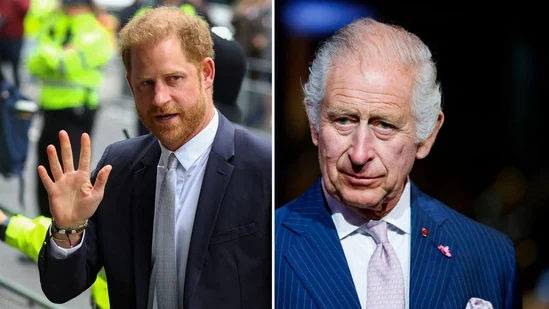Prince Harry’s recent visit to the UK has sparked controversy as he turned down an offer from King Charles to stay at a royal residence, citing security concerns. During his three-night stay in London, Harry chose to stay in a hotel instead of accepting his father’s invitation. This decision comes amid an ongoing rift within the royal family and speculation about Harry’s potential meetings with family members, including the King and Kate, who are both undergoing treatment for cancer.
According to reports, Harry’s spokesman stated that the Duke wanted to meet the King, but his father was “too busy” to see him. The UK media reported that Harry rejected the offer to stay at a royal residence because it did not include personal security measures, which he felt would leave him vulnerable due to the visible location and public access points. Consequently, Harry opted for a hotel stay to ensure he could move around unnoticed.
The specific location where King Charles offered Harry a room has not been confirmed, but it is speculated to be St James’ Palace, which is close to Clarence House. St James’ Palace is known for hosting members of the royal family, including Princess Beatrice and Princess Anne, and is equipped with advanced security measures. Despite these provisions, Harry’s decision to stay elsewhere was influenced by his ongoing concerns about his personal safety.
Royal expert Victoria Arbiter noted on social media that Harry’s rejection of the invitation was primarily due to security fears. Harry, who no longer has an absolute right to police protection, must now apply for security arrangements well in advance of his visits to the UK. This application process involves submitting a request to the Metropolitan Police at least 28 days before arrival, with each request being considered on a case-by-case basis by the Royal and VIP Executive Committee (Ravec).
The decision has drawn criticism from some quarters, including royal expert Angela Levin, who took to social media to express her disapproval. Levin highlighted the perceived inconsistency in Harry’s actions, noting that while he declined the King’s offer due to security concerns, he had no qualms about visiting Nigeria, a country known for its security challenges. This criticism was echoed by others on social media, who suggested that Harry’s primary aim might be to regain his status as an internationally protected person (IPP) and questioned the need for taxpayer-funded security.
The incident underscores the ongoing tensions within the royal family and the complex security arrangements for its members, particularly those no longer serving in an official capacity. As Prince Harry continues to navigate his new life outside the royal fold, his choices regarding security and family interactions remain a topic of public interest and debate.

